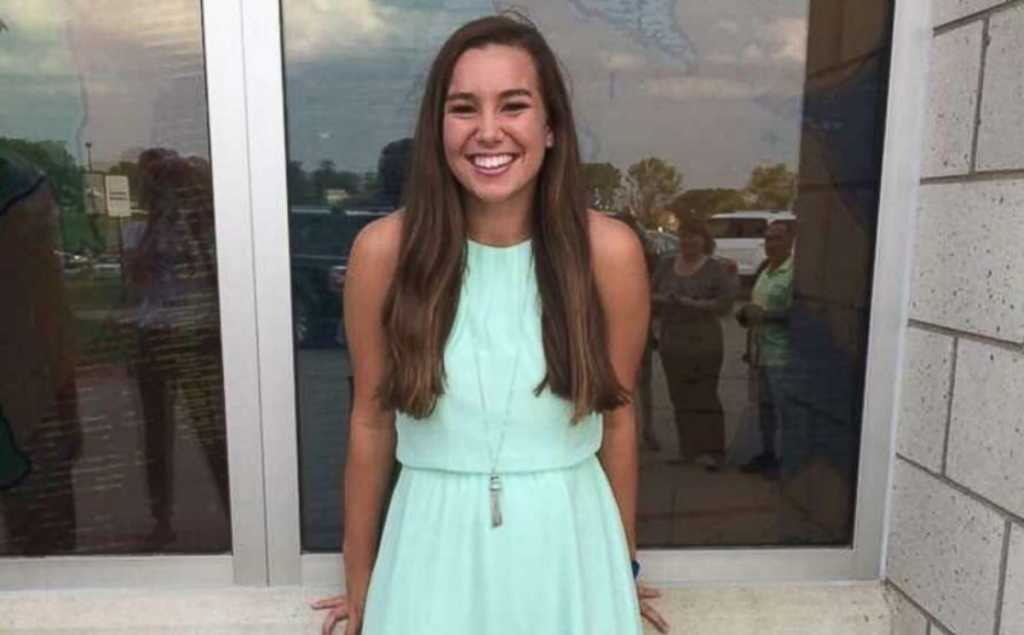As she has been known to do in the recent past, the Communications Director for Turning Point USA (TPUSA), Candace Owens, managed to get into an embarrassing Twitter war. This time, Owens got into it with just about the last person anyone should be sparing with: a family member of the late Mollie Tibbitts, the young woman brutally murdered in Iowa. It started with this:

and fyi @RealCandaceO, my whole family is hurting right now and you’re not helping. you’re despicable and this is so far from the loving and kind soul that mollie was. my prayers go out to you in hopes that maybe you’ll become a better person. not hedging my bets tho.
— sam (@samlucasss) August 22, 2018
And descended into an inexplicable back-and-forth between the women, with Owens then replying:
I find it strange that you have directed obscenities and hate towards people that support the President, but you have not directed a single bad word toward the monster who committed this terrible crime.
— Candace Owens (@RealCandaceO) August 22, 2018
After every mass shooting, conservatives caution against doing exactly what Owens and countless others have done after the murder of Mollie Tibbitts: turning her death into a political football long before all of the facts are known. After a day and a half of right-wing media and politicians focus on the illegal status of her alleged murderer, a wrinkle in the narrative emerged: he may not have been in the country illegally after all.
Why is it that pro-Second Amendment conservatives strongly push back on gun control messages after shootings like Parkland or Sandy Hook? For precisely the reason we’re seeing with the Tibbetts case: In a story as fast-moving as this, it’s impossible to immediately know all of the facts and be able to extrapolate policy recommendations that would have prevented a tragedy from happening. It takes time to learn how and when the gun was obtained, if it was purchased, obtained or altered illegally, if law enforcement were made aware of the suspect before the shooting took place. As we can’t make policy in the immediate wake of mass shootings, so too is it impossible in the aftermath of this Mollie Tibbitts case; we aren’t even sure if the alleged murderer was here illegally, how he arrived, his previous interactions with law enforcement, and a host of other questions, both known and unknown.
For now this is what we know: A young woman has died, a family is mourning, and the criminal justice system will evaluate the case and determine the suspect’s means, motive and opportunity. Gathering that kind of information could take weeks or months, and requires an intense amount of detective work. After that point, and after the criminal justice system has made a ruling, it will be possible to step back and take a full-picture view of the events that took place that led to Tibbitts’ death, and an even farther step back to determine steps authorities and legislatures could take to prevent similar crimes from happening.
After inexplicable tragedies, it’s a natural impulse to try to convince ourselves that it was somehow preventable, that if certain steps are taken in the future, our families would be protected from the pain the Tibbitts family are experiencing. It’s human nature to try to solve problems; and indeed, some problems can be solved. Sometimes, tragedy can be avoided, and that could mean enacting gun control legislation or immigration reforms. There’s an adage that the worst laws are those named after people. Writing for the LA Times, Ted Frank explained, “Bills named after sympathetic victims are the worst form of knee-jerk lawmaking, but it’s a surefire political vote-getting device. A politician holds a press conference standing next to the victim’s family; this gets the bill on the news. Because of terse media coverage, voters think said law will actually do something for a victim or potential future victims, no matter what the real legal changes are.” Racing to Congress to change our immigration laws based on one murder case, or stripping centuries of gun rights because a handful of teenage survivors after a mass shooting demand it, would be the equivalent of naming a law after Mollie Tibbitts or Parkland.


